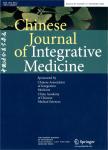A Randomized Controlled Trial of Mindfulness in Recovery from Colorectal Cancer
作者机构:Te Whatu Ora(Health New Zealand)Waitaha CanterburyChristchurch 8011New Zealand University of OtagoChristchurch 8140New Zealand The Psychology HubChristchurch 8011New Zealand Oxford Mindfulness CentreUniversity of OxfordOxfordOX12JDUnited Kingdom Nature and Nurture SparksChristchurch 8013New Zealand University of OtagoDunedin(9016)New Zealand
出 版 物:《Chinese Journal of Integrative Medicine》 (中国结合医学杂志(英文版))
年 卷 期:2023年第29卷第7期
页 面:590-599页
核心收录:
学科分类:1002[医学-临床医学] 100214[医学-肿瘤学] 10[医学]
基 金:Beat Bowel Cancer NZ Southern Cross Healthcare Society University of Otago
主 题:anxiety colorectal cancer depression distress mindfulness psychoeducation psychology psychological distress randomized controlled trial quality of life
摘 要:Objective:This study examined whether a 4-week group-based mindfulness intervention would be superior in reducing psychological distress in colorectal cancer(CRC)patients compared to a psychoeducation and cognitive behavioural skills learning support active control ***:Patients with CRC were randomized via Computerised Permuted Block Randomisation to mindfulness or active control groups(2-h weekly sessions over 4 weeks).Outcomes were measured pre-intervention,and 8 weeks and 6 months *** primary outcome was psychological distress measured by the Hospital Anxiety and Depression *** outcomes were generic quality of life(QoL),disease specific QoL,mindfulness,and intervention credibility and ***:Sixty-eight participants were randomized to mindfulness(n=35)or active control group(n=33).Uptake of potentially eligible patients consenting was low(28.0%)and the dropout rate was 33.8%.Depression scores were reduced in both groups at week 8(P=0.020).Control participants had greater improvement in generic mental QoL scores at week 8 than mindfulness(P=0.023).In disease specific QoL,there was reduction in impotence symptom in the mindfulness group(P=0.022)and reduction in faecal incontinence in the control group(P=0.019).The embarrassment symptom had a significantly lower increase in the mindfulness group at week 8 compared to the control group(P=0.009).Both groups rated the treatments as credible and ***:Mindfulness was not superior to the active control group in terms of alleviating psychological distress but both treatments were associated with some improvements in *** was low uptake of both interventions.(Trial registration number:ACTRN12616001033437)



